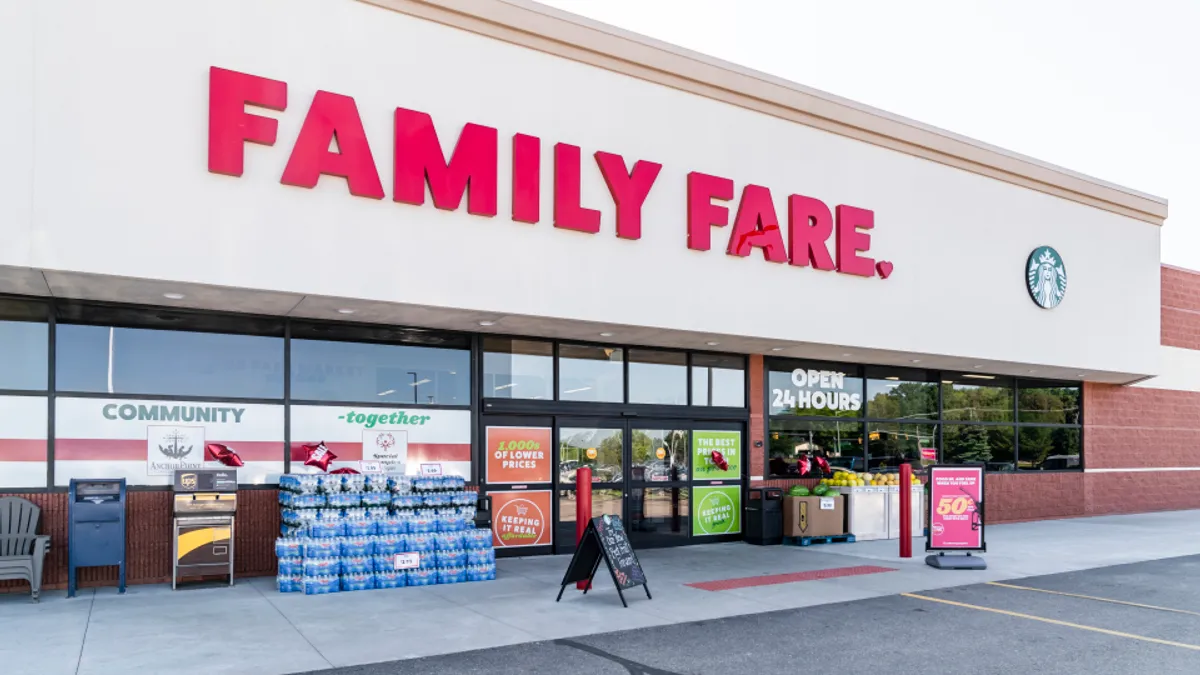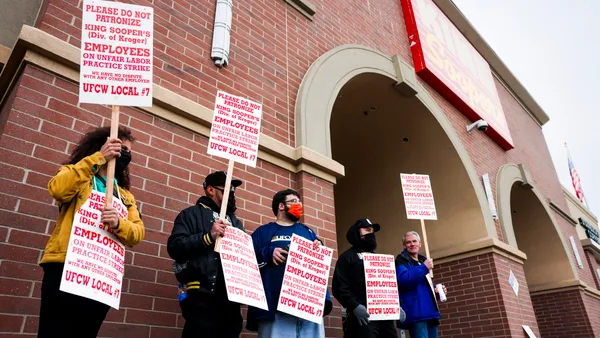Dive Brief:
- SpartanNash has purchased Shop-N-Save Food Centers, a family owned chain of three grocery stores in northwestern Michigan, according to a Tuesday press release. Terms of the deal were not disclosed.
- The grocery distributor, wholesaler and retailer has converted the stores, in Benzonia, Fremont and Ludington, Michigan, to its Family Fare banner.
- The announcement follows the rejection by SpartanNash shareholders last week of a bid by activist investors to replace several members of its board of directors.
Dive Insight:
SpartanNash’s acquisition of Shop-N-Save, which was founded in 1973, brings under the company’s control a grocery chain it has been supplying for almost 25 years, according to the press release.
With the addition of the Shop-N-Save locations, SpartanNash operates 86 Family Fare stores across the Midwest, representing more than half of the supermarkets in the company’s portfolio. SpartanNash’s other banners include Martin’s Super Markets and D&W Fresh Market.
The jobs of all Shop-N-Save associates were preserved as part of the transaction, SpartanNash said.
While retail sales comprise only about 28% of SpartanNash’s revenue base, the company looks to the supermarkets it runs to help guide its overall corporate direction, President and CEO Tony Sarsam said in a statement.
“Our grocery stores are an important contributor to our business strategy, allowing us to provide a full portfolio of solutions for independent and chain customers that go beyond food distribution,” Sarsam said. “We leverage the insights from our retail stores to continuously innovate our products and operations across our global network.”
About half of SpartanNash’s approximately $2.7 billion in net sales during its latest quarter stemmed from the company’s grocery-distribution business. The balance came from its business running commissaries and exchanges at U.S. military facilities around the world.
SpartanNash has until recently been preoccupied with an effort to defend itself against a group of minority shareholders that attempted unsuccessfully to convince shareholders to remove Chairman Douglas Hacker and two other directors from its board.
The activist investors, led by Macellum Advisors and Ancora Holdings Group, argued that SpartanNash’s management team had held back the company’s share price through its decisions and was plagued by chaos in its leadership ranks. SpartanNash, which has brought on a host of new executives since 2020, including Sarsam, countered that the investor group did not understand its business model and relied on outdated information in formulating its rationale for demanding change at the company.













